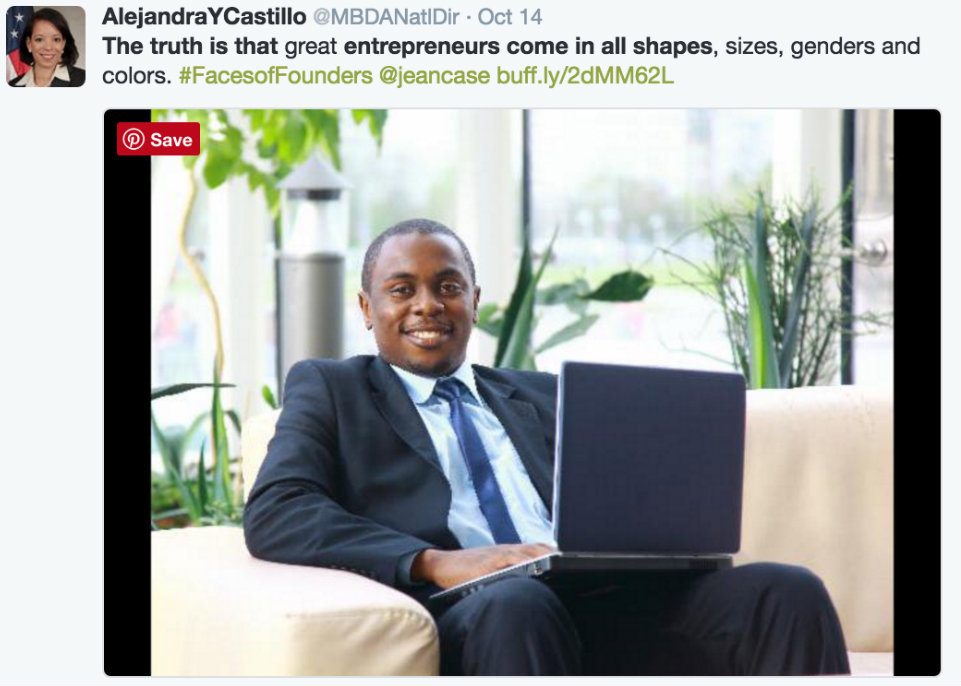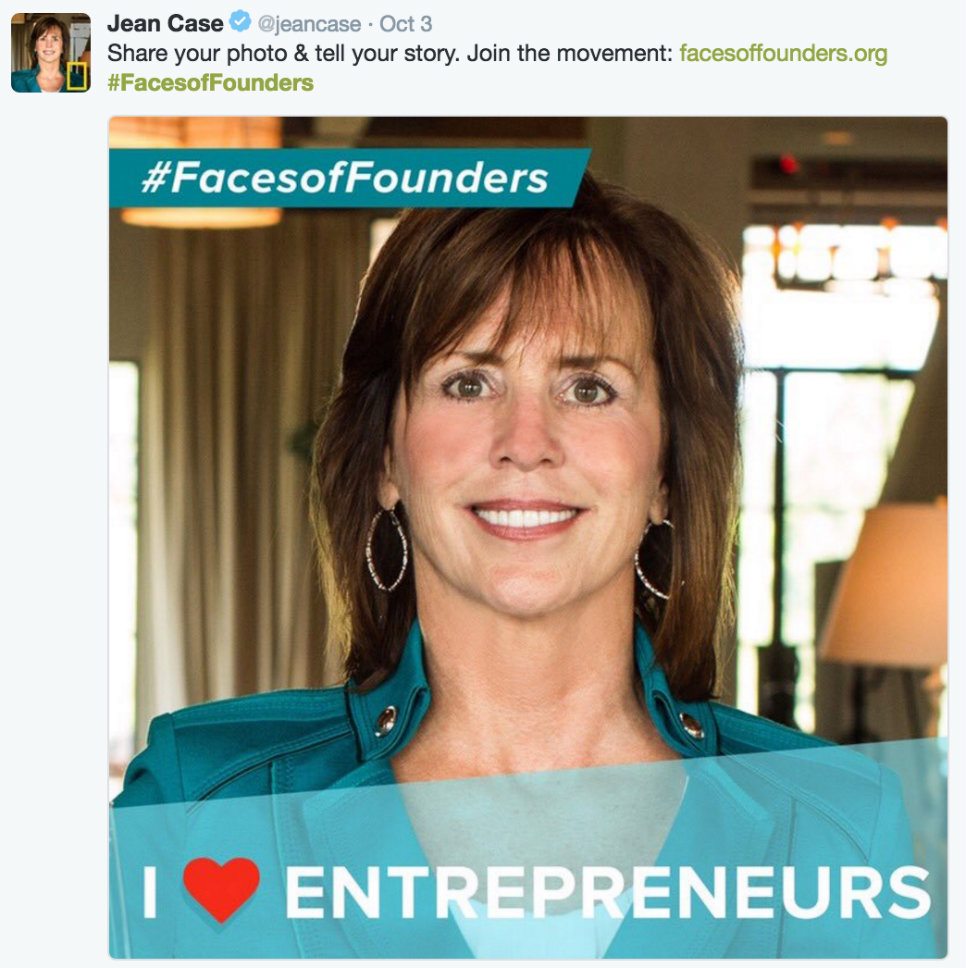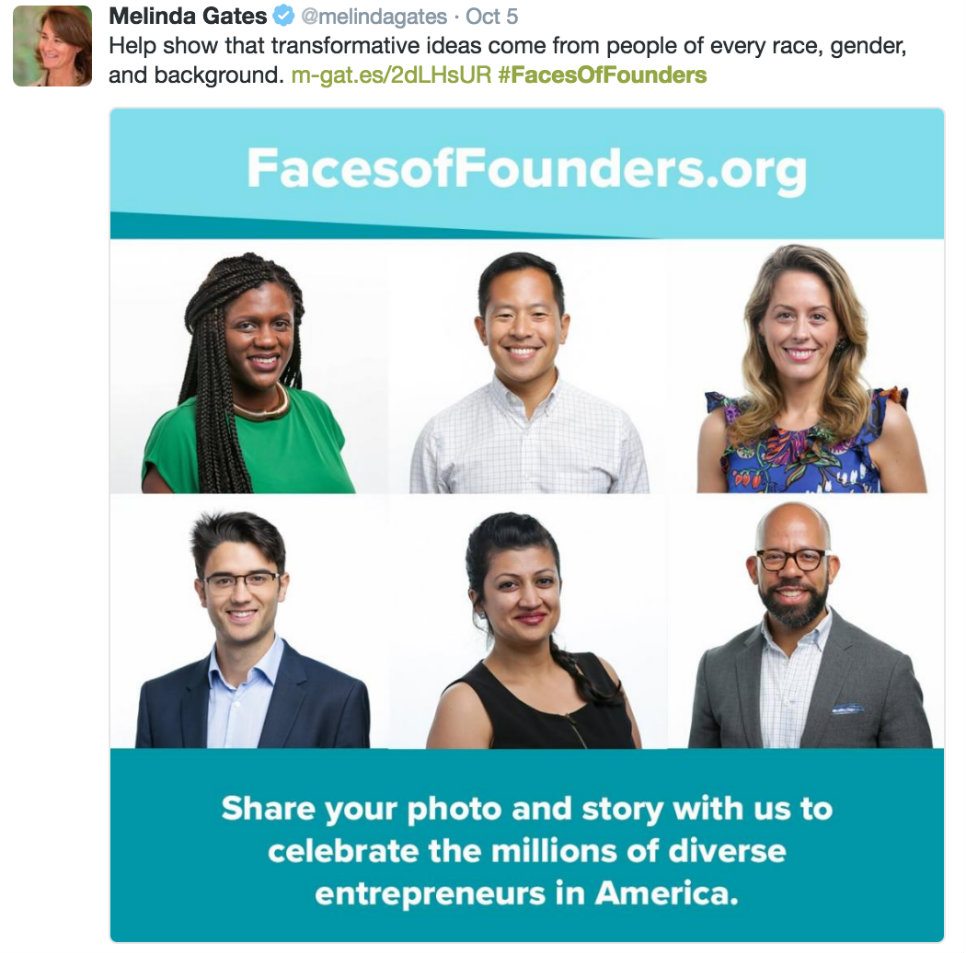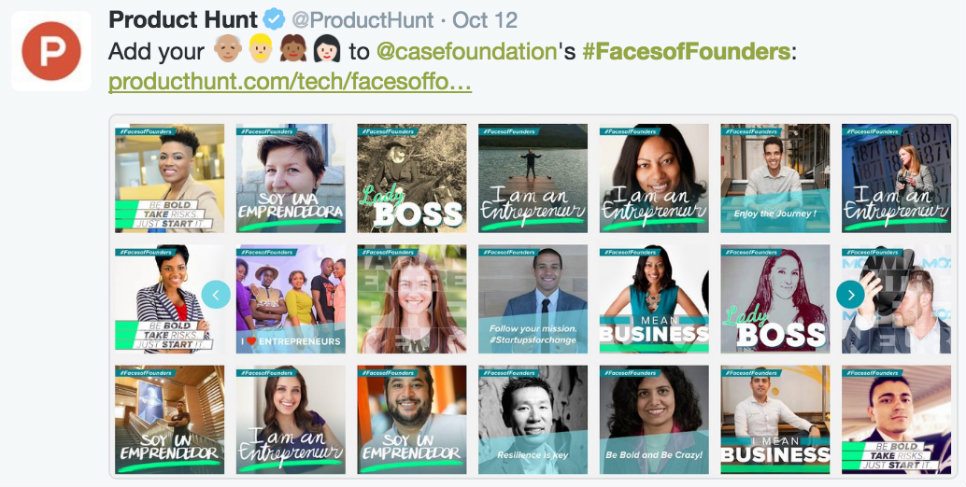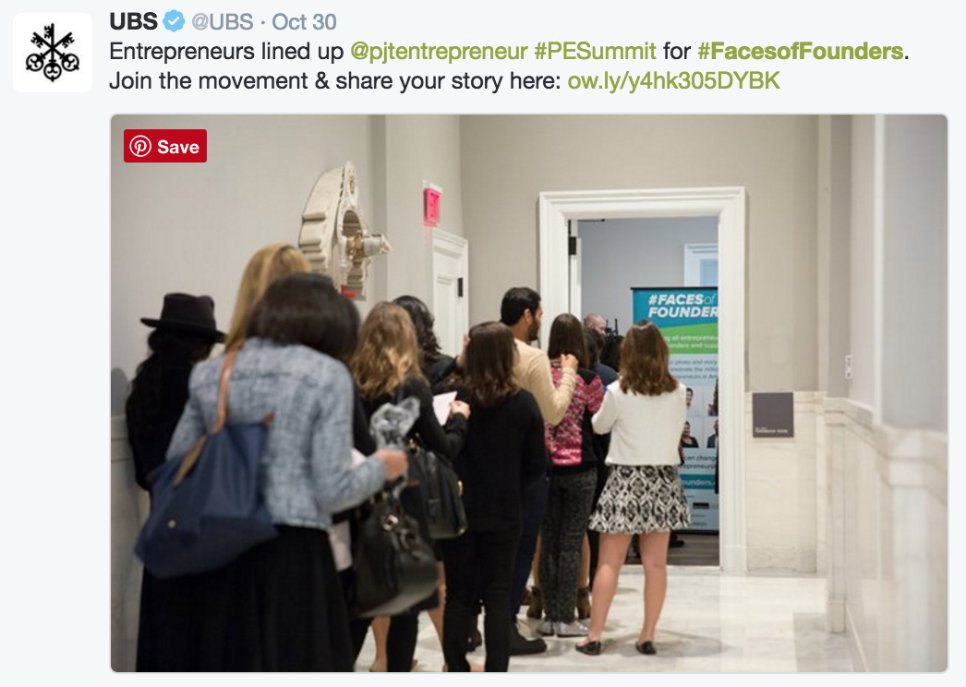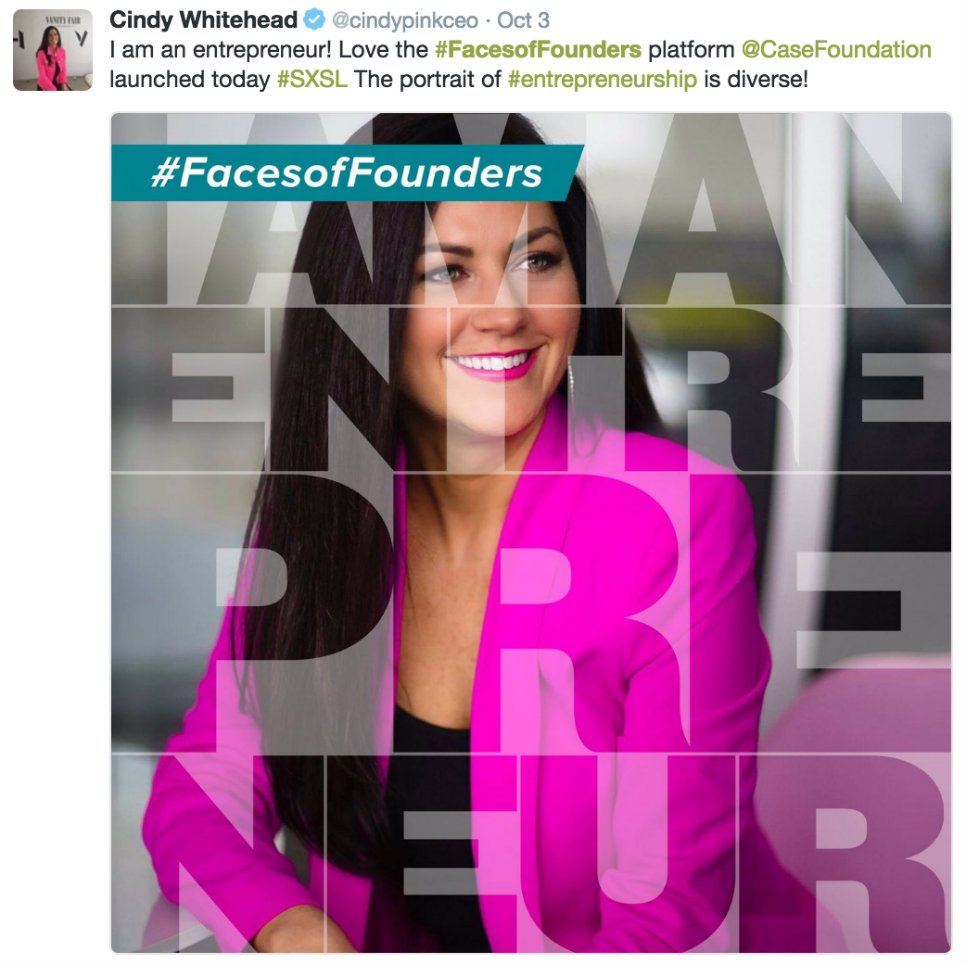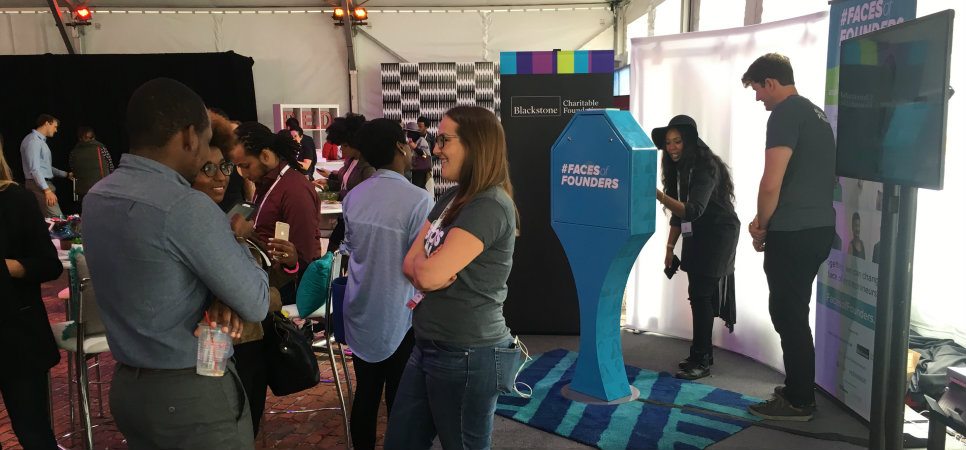As part of the Case Foundation’s work in catalyzing the inclusive entrepreneurship movement, we launched the #FacesofFounders campaign last fall to change the narrative of who is and can be an entrepreneur. In October and November, over 3,000 people created a custom photo with a caption of what entrepreneurship means to them and nearly 750 founders submitted their entrepreneurship story. From our launch at the White House’s South By South Lawn festival, to Jean Case’s talk about unlocking the American Dream for all at TEDxMidAtlantic, #FacesofFounders has inspired and energized us all to join the movement for inclusive entrepreneurship. After some challenging choices and deep analysis by our guest judges, we’re excited to announce that the five winning stories will be featured on Fast Company starting February 27th!
In preparation for this reveal, we asked a few of our guest judges to share some behind the scenes insights and words of wisdom about the opportunities and challenges of being an entrepreneur. Thank you to all of our judges—we could not get to this point alone! We were joined by forty guest judges who are experts in entrepreneurship ecosystem building, investors or entrepreneurs themselves. Here is what they have to share with us as we all find new ways to #GetInTheArena and fight for meaningful inclusion in entrepreneurship.
What is a piece of advice you wish you had known when starting out in the entrepreneurship field?
Take action when you’re 80% ready. There are lots of people with great ideas, but the real traction is gained by those who take continuous action on those ideas.
– Carolyn Rodz, Circular Board
Surround yourself with a community of supporters. Ideas are born out of dreams for something new, different, and impactful. It takes a lot of time, nourishment, and most importantly a community of supporters to enable an idea to truly flourish into a venture. Every entrepreneurial success has taken hundreds of small and big connections to bring it to life.
– C’pher Gresham, SEED SPOT
Entrepreneurs are explorers. Your adventure will have extreme highs and lows, but the journey will be worth the destination.
– Elizabeth Gore, Dell
As an intrapreneur, I wish I knew that you don’t have to be perfect to launch a new project or endeavor. It’s so easy to get caught up in making something absolutely excellent, but the important lesson is don’t wait to launch. When we interviewed Eric Reiss of the Lean StartUp, I started to realize the importance of letting go of being a perfectionist and launching. Some of my favorite accomplishments have come from a Lean StartUp approach.
– Gabrielle McGee, Tory Burch Foundation
I wish I had known that making an impact or doing meaningful work is not enough to build a sustainable, impactful venture. For social entrepreneurs, we must do the work that changes lives but we also have to constantly build and cultivate relationships with supporters and stakeholders as well as be compelling advocates for our cause. Making a measurable impact on someone’s life is the hardest and most meaningful part of social entrepreneurship, but it takes even more than that (like fundraising skills, management know-how, etc.) to be a successful social entrepreneur.
– Darius Graham, Social Innovation Lab at Johns Hopkins University
Plenty of smart, dedicated, and passionate entrepreneurs with promising viable business ideas have lost out on opportunities or money due to horrible pitches. Here’s how not to be one of them—don’t try to tell your life story. These are the pitch perfect things to you want to convey: how the product, service, or technology you are offering solves a problem or pain that you are familiar with; how much of your own time and money are you willing to risk; who is your competitor because every business has one; how are you going to acquire new customers and keep any existing customers happy; and what is your business model and how it will make you money.
– Carolyn Brown, Black Enterprise
In every meeting, focus on the value you are providing—not the value of your company, but the value to the other person! If you’re fundraising, you should understand the problem the investor is trying to solve, and focus your conversation on how you help them solve the problem (not why you’re great!). If you’re talking to a customer, understand what their pain point is and focus on how you help them solve it (not why you’re great!). When talking about value, it’s better to be specific and wrong than vague and right, so try and be as specific as possible: not just “better” but “3x faster”; not just “cheaper” but “half the price”.
– Ross Baird, Village Capital
Hire slow and fire fast. When you’re starting up you might have a tendency to try to hire people quickly because it feels like momentum. The problem with that is that you may be compromising culture fit and you’re signing up for more as you’ve added payroll which means you now have to do more to sustain the team. Additionally, in a startup every moment matters so if you find yourself with a hire that is not working out, make a change as soon as possible. Most likely the hire in question knows that they’re not the right fit – so it shouldn’t be a surprise.
– Frank Gruber, Tech.co
Remember, everything you see is just a thought manifested. Your job is hustle, manifest and hustle some more! – Talib Graves-Manns, Black Wall Street Homecoming
What do you think distinguishes a promising entrepreneur?
I always keep an eye out for founders who are personally committed to their mission, and who have engaged others in making it come to life. When it becomes more than a solo mission, entrepreneurs hit a point where failure is no longer an option, and that’s where the real magic happens.
– Carolyn Rodz, Circular Board
I look for evidence that the applicant has a deep, intimate understanding of the issue being addressed and the population being served. This can be shown in different ways such as through work experience, academic study, or – most often – life experience. In my years of work supporting social entrepreneurs, one of the key things that sets apart the highly-impactful entrepreneurs from the less-impactful ones is an extensive understanding of the issue being addressed and the population being served.
– Darius Graham, Social Innovation Lab at Johns Hopkins University
Relationships matter, which means people matter. Successful entrepreneurs understand this and have fostered important relationships to propel themselves to success. As much as it might sometimes seem, nothing is an overnight instance success.
– Frank Gruber, Tech.co
What surprised you about the #FacesofFounders applications?
What surprised me the most about #FaceofFounders applicants was how diverse the businesses were. Innovation is alive and thriving! It’s exciting to learn about businesses that are disrupting, creating new ways, new products and many of them are making a difference in the world and their local communities.
– Gabrielle McGee, Tory Burch Foundation
The sheer size of the positive energy around problem solving for experiences each founder had all over the country! My hope is #FacesofFounders has helped diverse entrepreneurs feel a community around them and that it doesn’t matter the color of your skin, where you grew up, or your political beliefs, but that ANYONE can start a venture with enough passion, true grit, and belief in creating a better future.
– C’pher Gresham, SEED SPOT
Thanks again to all of our guest judges and partners Blackstone Charitable Foundation, Google for Entrepreneurs and UBS who made this campaign possible. Because of these partners and the thousands that have committed to join the movement for a more inclusive approach to entrepreneurship, we are opening doors to innovators everywhere to start and scale their businesses. Come back on Monday to read the featured stories of fearless, problem solving founders on Fast Company!

